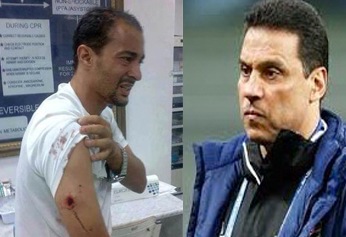By Michel Cousins.
Tripoli 25 October 2013:
The General National Congress has been asked by the head of the High National Election Commission . . .[restrict](HNEC), Nuri Elabbar, to postpone the elections for the new municipalities because they would clash with those for the 60-member committee which is to draw up Libya’s new constitution.
The proposal is on Congress’ agenda when it meets on Sunday and is expected to be approved. There is, however, likely to be resistance from Congress members from the municipalities where plans for the elections have reached an advanced stage.
It has also been criticised by the local committee organising the elections for the new Benghazi municipal council. The city urgently needed an effective council in view of the security situation there, a member of the committee said on Libya Al-Ahrar TV station last night. HNEC was wrong to demand a postponement for the municipal elections, the official said.
However, the president of Congress, Nuri Sahmain, last night said on TV that they would probably have to be delayed.
If Congress approves HNEC’s request, it would probably mean that the municipal elections would not start before the end of January at the earliest. The Constitutional Committee elections are supposed to take place in late December, but that is seen as optimistic. Mid-January is seen as more likely.
The process of registering voters and candidates for the 90 municipalities is already complete in Beida where 24,000 people and 49 candidates registered and in Ghat (5,000 voters or 30 percent of potential electorate). Registration is currently taken place in Gharyan, Traghen, Awjila, Al-Haraba, Tazerbu, Zintan, Bint Baya, Shahat and Wadi Idba. It is due to start shortly in Zultan, Ajilat, Assaba, Hawamid, Nisma and Jalu. It should take place in Benghazi soon as well.
Municipal elections could take place in the next four weeks in Beida, Ghat and those places where registration is currently underway, Otman Gajiji, chairman of the Central Committee for Municipal Councils Elections (CCMCE), has said. The success of the process so far, he stressed, was largely due to the dedication and hard work of CCMCE staff, local committee workers and the support of the civil registry authorities. He also thanked the EU for donating election material as well as UNSMIL and UNDP for their support.
If the elections were postponed, he said, the CCMCE would continue to work, preparing and training committee officials for elections in other municipalities. [/restrict]






